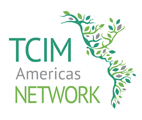WHO approves resolution to strengthen the health of indigenous peoples

The World Health Assembly succeeded an unprecedented resolution calling on the Director-General to develop a global action plan for the health of indigenous peoples.
“The resolution to protect the health of indigenous peoples, which is the first global resolution to be presented, was successfully approved and this will allow indigenous populations to receive due attention throughout our countries,” said the Dr. Marcos Espinal, Deputy Director of the Pan American Health Organization.
This plan must be presented to this body of the WHO in 2026 and must adopt an approach that covers the entire life course, with special emphasis on reproductive, maternal and adolescent health, focusing especially on people in situations of vulnerability and taking into account the local context.
“Caring for the health of indigenous peoples means understanding the territorial dynamics, the particularities of these communities, the complexities of the context and the way of life of each people in each community, and obviously governments are in a position to develop strategies, political plans that they can guarantee strategies, plans, policies that can guarantee access in an equitable, organized and efficient way for indigenous communities around the world”, said Weiber Tapeba, Secretary of Indigenous Health of the Brazilian Ministry of Health, who was present at the Assembly in Geneva.
The resolution also requests the Director to provide technical support, at the request of Member States, to develop national plans for the promotion, protection, and improvement of the physical and mental health of indigenous peoples, including in the context of emergencies public health.
According to the WHO, although they represent diverse population groups and communities, in general, indigenous peoples have a less difficult life expectancy than non-indigenous populations. They also have a higher prevalence of many diseases and adverse health conditions, such as diabetes, maternal and infant mortality, and malnutrition.
The World Health Assembly is the supreme decision-making body of the World Health Organization. It meets in Geneva in May of each year with the attendance of delegations from the Member States. The main function of the Health Assembly is to determine the policies of the Organization, appoint the Director General, supervise financial policies, and review and adopt the proposed program budget. The World Health Assembly meets annually in Geneva, Switzerland.
Read the draft resolution


